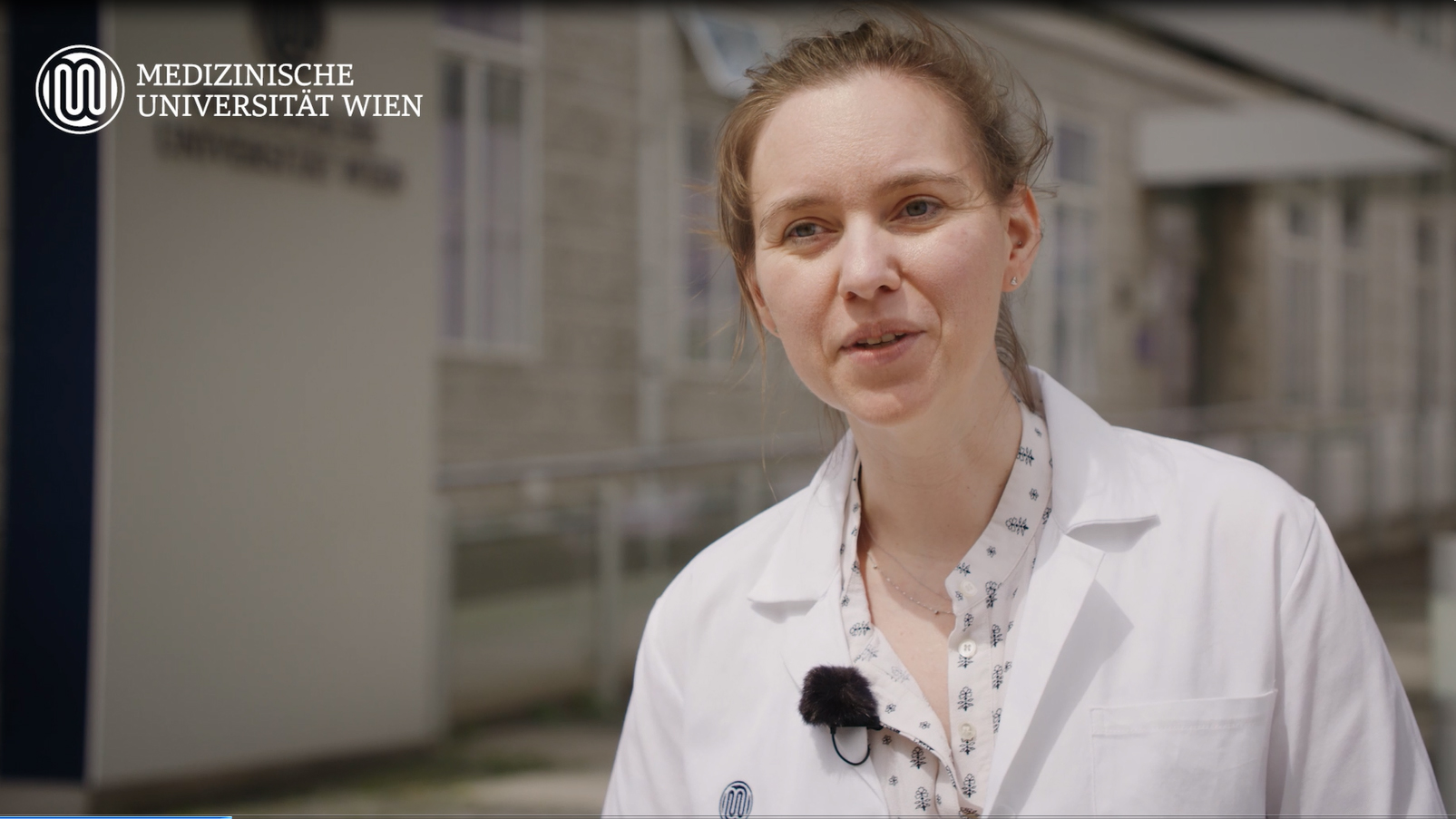(Vienna, 08 June 2021) Precision medicine means targeted diagnosis and therapies for patients, so that they can be treated on a completely individual basis. Investigating the underlying mechanisms of disease for the purpose of providing personalised medical treatment will, in future, allow serious diseases to be diagnosed and treated on a much more targeted and personalised basis. In the Vienna Science and Technology Fund (WWTF) "Precision Medicine" Life Sciences Call 2020, a total of €6.07 million have been allocated to fund seven outstanding research projects selected on the basis of a rigorous international assessment. The projects that have been funded at MedUni Vienna and St Anna Children's Cancer Research Institute lie between basic research and clinical application.
In these times of COVID-19, many resources and much attention is being directed at combating the pandemic. However, despite coronavirus, all the other diseases are still on the agenda, and it is particularly important not to lose sight of them now: this requires research, as Mayor Michael Ludwig underscores: "Every day, Vienna is doing its utmost to fight the COVID-19 pandemic. At the same time, as a healthcare metropolis, we are concerned with providing comprehensive care for all diseases and we therefore support the important funding activities of Vienna Science and Technology Fund."
Background
With its "Life Sciences" call, Vienna Science and Technology Fund (WWTF) has regularly funded medical research projects since 2003. Since 2016, WWTF has been focusing on "precision medicine" as one of the most important themes for the medicine of the future. WWTF has already funded 12 projects with total funding of €10.75 million. This initiative is also accompanied by huge efforts on the part of the major research institutions to create the necessary infrastructure for precision medicine. For example, over the next few years, the Medical University of Vienna is building a large research building, as MedUni Vienna Rector Markus Müller explains: "Precision medicine is the most significant trend in 21st century medicine. In order to keep pace with this development on our medical site, we will be making huge investments in buildings and infrastructure over the next few years. Alongside this infrastructural expansion, it is crucial to ensue that there is excellent, internationally competitive funding for research projects. It is here that WWTF plays an outstanding role in implementing numerous large projects." Link to WWTF-Website.
About precision medicine
Precision medicine involves an approach to the prevention and treatment of diseases that considers the differences in the individual genetics, environment and lifestyle of each patient when making a clinical assessment. This targeted, personalised approach allows for more accurate prediction of treatment and/or prevention strategies. This requires the combination of basic research, genetics, clinicians and IT. Precision medicine aims to move treatment regimes away from the "average patient" to focus on the individual. In the longer term, precision medicine can provide treatment strategies that are not only more effective but also help to reduce the side-effects often associated with conventional treatments.
High level of interest within the "community", award of €6.07 million
There was a high level of interest from the "scientific community": WWTF received a total of 82 brief proposals, of which 24 went through to the full proposal stage. Current WWTF President and former Mayor Michael Häupl emphasises the dynamism of this field: "Coronavirus has shown us why science is so important. By supporting precision medicine, WWTF is supporting the interaction of basic research, genetic analysis, mathematical modelling and clinical trials. We are thereby helping to create a community that can use research to combat serious diseases in a targeted way."
The funded projects relate to many different areas of medical research, ranging from a better understanding of individual types of cancer and the use of new drugs, through to the application and combination of new technological methods. The quality of the projects is extremely gratifying, says WWT CEO, Michael Stampfer: "Our international expert jury and the expert assessors say to us: 'You have many world-class research groups in Vienna capable of making important contributions towards the medicine of the future.' WWTF has an important role to play in supporting this process." WWTF is providing nearly €900,000 per project and the project terms vary between three and four years. One million euros of the total funding amount will come from supplementary funding from the City of Vienna.
Details of the Vienna Science and Technology Fund Life Sciences Call 2020 projects
Six research teams from the Medical University of Vienna (MedUni Vienna) and one group at St. Anna Children's Cancer Research Institute (CCRI) were awarded funding.
Three of the projects relate to improving paediatric care – from preterm infants through to adolescents.
- Eleni Tomazou (CCRI) and her colleagues are trying to develop a minimally invasive biopsy to identify high-risk patients with Ewing sarcoma, a type of bone cancer that primarily occurs in adolescents.
- Lukas Wisgrill and his team from MedUni Vienna are investigating the unique nasal microbiome of preterm infants, in order to determine how to reduce their susceptibility to viral infections.
- Likewise focusing on preterm infants, Monika Resch (MedUni Vienna) and her team are researching ways to facilitate more accurate diagnosis of intraventricular cerebral haemorrhage, to pave the way for more effective clinical interventions.
Two projects relate to cancer in adult patients.
- Adelheid Wöhrer (MedUni Vienna) and her colleagues are investigating how dying brain cells may contribute to tumour progression.
- Georg Langs (MedUni Vienna) and his team are using molecular analysis and imaging to identify a subgroup of breast cancer patients who can forego curative surgery.
Kidney diseases are being examined in greater detail in these two funded projects.
- The project of Manfred Hecking (MedUni Vienna) and colleagues is directed at developing automated treatment in haemodialysis.
- For patients awaiting kidney transplants, the research of Rainer Oberbauer (MedUni Vienna) and team should allow individualised risk stratification on the basis of rare genetic variants.

After activation, data will be sent to YouTube. Further information here: Data protection